|
March 24, 2021 - No. 21
All India Shutdown to Take Place March 26
All Out to Support the
Demands of Indian Farmers!

Workers' Resistance in Britain to Anti-Social Offensive
• Workers Step Up Opposition to Widespread Use of "Fire and Rehire" Methods
• Government's Disrespect for Health Workers
All India Shutdown to Take Place March 26
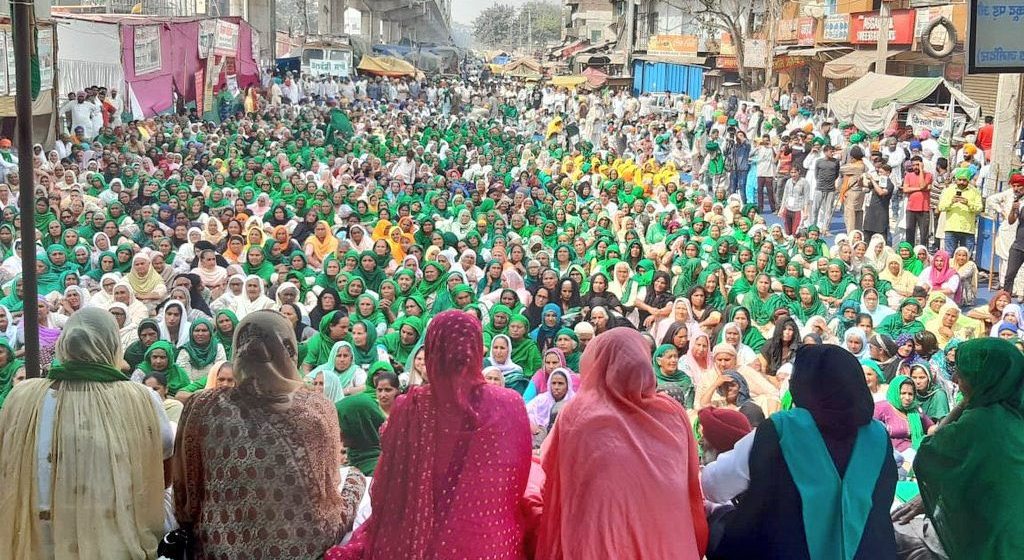
March 15, 2021. Women farmers at the Delhi-Tikri border, March 15,
2021
Protesting farmers in India have set a plan for a number of actions. On
March 19 India-wide they marked Kheti Bachao, Mandi Bachao and the
anniversary of the Landless Workers' struggle. March 23 is the
commemoration of the martyrdom of Rajguru, Sukhdev and
Bhagat Singh 90 years ago. On March 26, the
farmers have called for an All-India shutdown. Transport unions
representing over 14 million truck drivers have come out in support of
the farmers' unions, threatening to halt the movement of supplies in
certain states.
Women in their hundreds of thousands and youth have taken their
place in the front ranks of the movement. A group of the sons and
daughters of Punjabi farmers who are prominent singers, have written a
new song, Kisan Anthem 2, which expresses the determination of farmers.
The essence of their song is Victory or Death! Ya Jit Ke
Jawange Ya Laashan Jaangiyan (Either we will go back victorious or our
dead bodies will return).
Protest sites surrounding Delhi have become great teach-ins and
universities for farmers and thousands of people. All matters that
concern the people are discussed in full view of hundreds of thousands
of people. Ordinary people are raising questions and participating in
discussions. Plans for gaddi wapsi (removal from power) of the BJP are
being discussed in the mahapanchayats (joint mass meetings of several
villages). 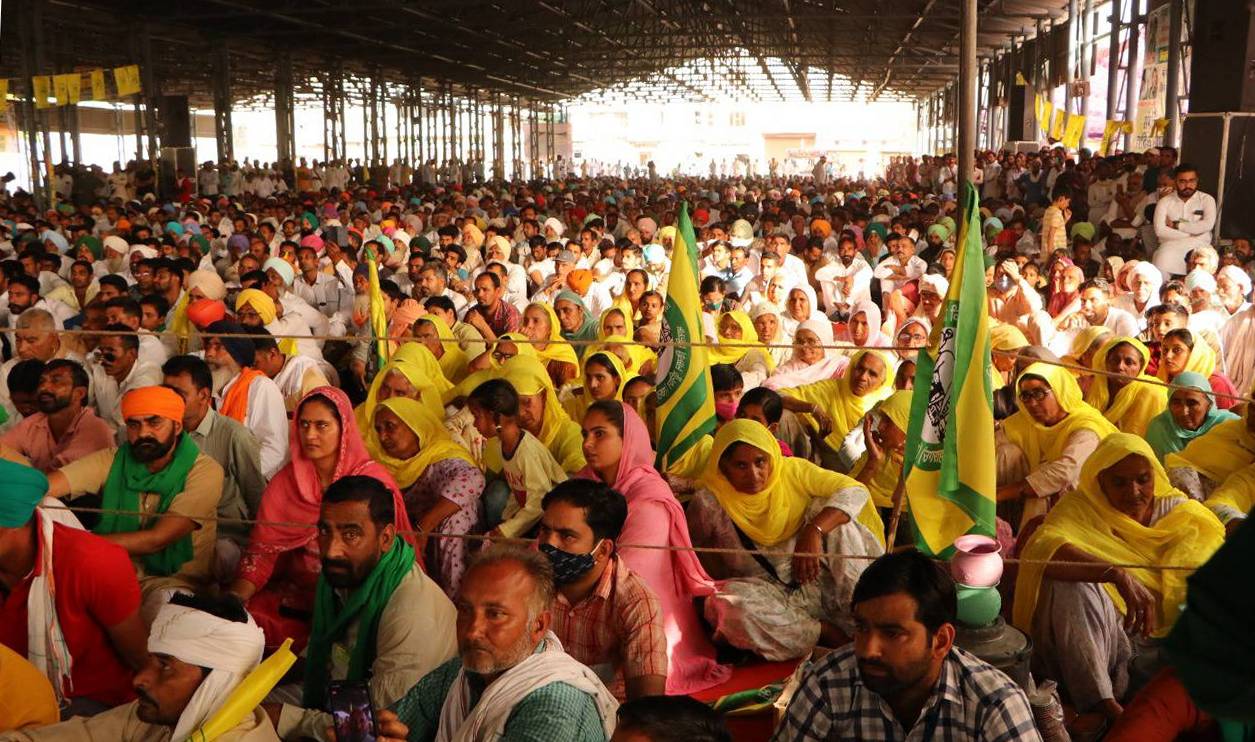
March 13, 2021. Mahapanchayat in Rajasthan
Without
doubt, this is an unprecedented mass movement the likes of which India
has not seen since the brutal partition conducted by the British
following which they imposed on the people the same British
institutions which had oppressed them under the Raj -- this time with
an Indian face. The result is that two-thirds of land holdings in India
-- the lands the rulers covet today -- are each less than one hectare
on which the farmers depend for their living. India reported a total of
296,438 suicides of indebted Indian farmers between 1995 and 2015. In
2019, 10,281 people who work in the farming sector committed suicide.
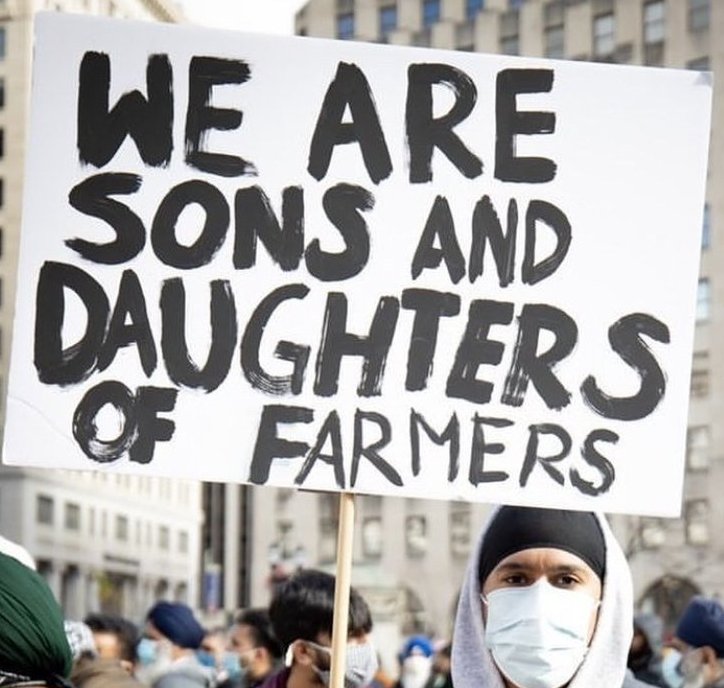 This mass movement has entered its ninth month. For more than four
months, farmers in their hundreds of thousands have lived in
encampments outside of Delhi. No amount of persecution, harassment,
arrests and covert actions have deterred them or split their ranks. This mass movement has entered its ninth month. For more than four
months, farmers in their hundreds of thousands have lived in
encampments outside of Delhi. No amount of persecution, harassment,
arrests and covert actions have deterred them or split their ranks.
Their level of organization is without precedent. They are feeding
hundreds of thousands of people, providing them with sanitation,
shelter and protection. The mass of the people rose independently,
uplifting all who make up the majority of the Indian people, especially
those pushed to the very lowest rungs of the social ladder who are
crushed
by oppression and exploitation. They have stamped on the course of the
developments in India, and indeed the world, the imprint of their own
demands.
Workers' Forum salutes their mighty achievement. Their
striving to build in their own way a new society in place of the old
one that is crushing them is focused, heroic, resilient and historic. All Out to Build the New by Making the Claims Which Belong to the
People
by Virtue of Being Human!
All Out to Support the Demands of Indian Farmers! 
Workers' Resistance in Britain to Anti-Social Offensive
 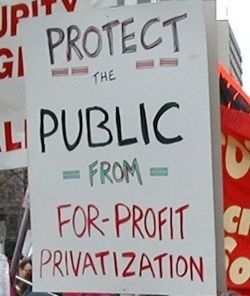
The method of "fire and rehire," where workers are re-contracted on
unfavourable terms under threat of termination of employment, or in
other cases forced to re-apply for their positions, has become a
widespread phenomenon in Britain particularly over the past year of the
COVID-19 pandemic. Its use is now so extensive that opposition to it is
being taken up by various unions, the Trade Union Central (TUC), and in Parliament.
Some one in 11 (nine per cent) of over 2,000 workers polled for the
TUC last November had experienced the tactic in some form. The poll
also found that this doubles (18 per cent) for workers aged 18 to 24
years old. Black and national minority workers were also
disproportionately affected (15 per cent).
Fire and rehire is a method being used to marginalize workers and
prevent workers from meaningfully expressing any kind of opposition to
their conditions. It is akin to the overt rule by police powers.
The newspaper Workers' Weekly points out:
"Part and parcel of the anti-social offensive, a general
disequilibrium exists in the social relation between those who work and
those who employ them, the owners and controllers of business and the
economy as a whole.
"This disequilibrium exists both at the level of society and in
individual workplaces, where employment relations have become entirely
one-sided, under the absolute control of the employer. Without
equilibrium, there is social disruption and chaos. All that exists is
the one-sided relation dominated by competing powerful interests.
"Imposition and arbitrariness are features of this situation and
amount to a refusal by those in control to recognize the right of
workers to negotiate collective agreements; as such, they amount to an
attempt to render workers and their unions powerless to resist.
"Recognition of this right is a starting point for regaining an
equilibrium in a workplace and contributes to bringing about an
equilibrium in society as a whole. People have a right to an
equilibrium at work and in general to be able to live and work with a
degree of security and without a constant and increasing sense of
anxiety."
The reason for this state of affairs is ultimately the highly
efficient and sophisticated nature of the modern socialized economy and
its fragmented ownership into privately-owned competing parts, showing
up as a dwindling rate of return on investment for the owners of
capital.
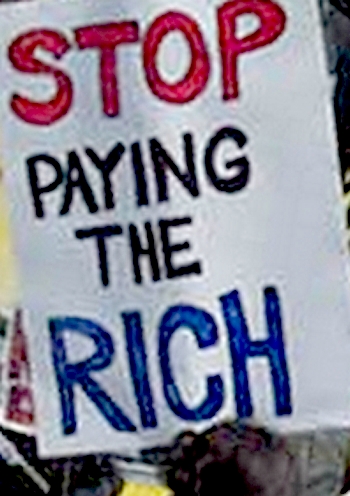 These
owners claim their profit, or added-value, from the new value created
by the working class. Modern business, in order to compete, invests
large amounts of capital in automated machinery, computers, and other
means of production, giving rise to an economy that is so productive
that a vast social product, in the form of goods and
services, is produced with relatively few workers contributing
work-time compared to the past. These
owners claim their profit, or added-value, from the new value created
by the working class. Modern business, in order to compete, invests
large amounts of capital in automated machinery, computers, and other
means of production, giving rise to an economy that is so productive
that a vast social product, in the form of goods and
services, is produced with relatively few workers contributing
work-time compared to the past.
As a result, a given commodity typically holds far less new value
than the pre-existing old value transferred to it by machinery and so
on. In this way, increasing productivity has greatly reduced the amount
of new value produced in relation to transferred-value, the social
product, and the total invested capital.
In the present, powerful global oligarchies are driven by ever
fiercer competition to maximize their claims on the new value produced
by the working class to counter the falling rate of return, to the point
that now they cannot countenance any opposition and are demanding total
control of every aspect of the economy, politics and the social
relation in which they stand with the workers they employ, altogether
taking the form of the anti-social offensive.
It is therefore significant that the unions are stepping up
resistance. The arrogance with which the owners of capital act with
impunity through their offensive against the social interest and any
pro-social arrangements calls into question their traditional and legal
position of authority.

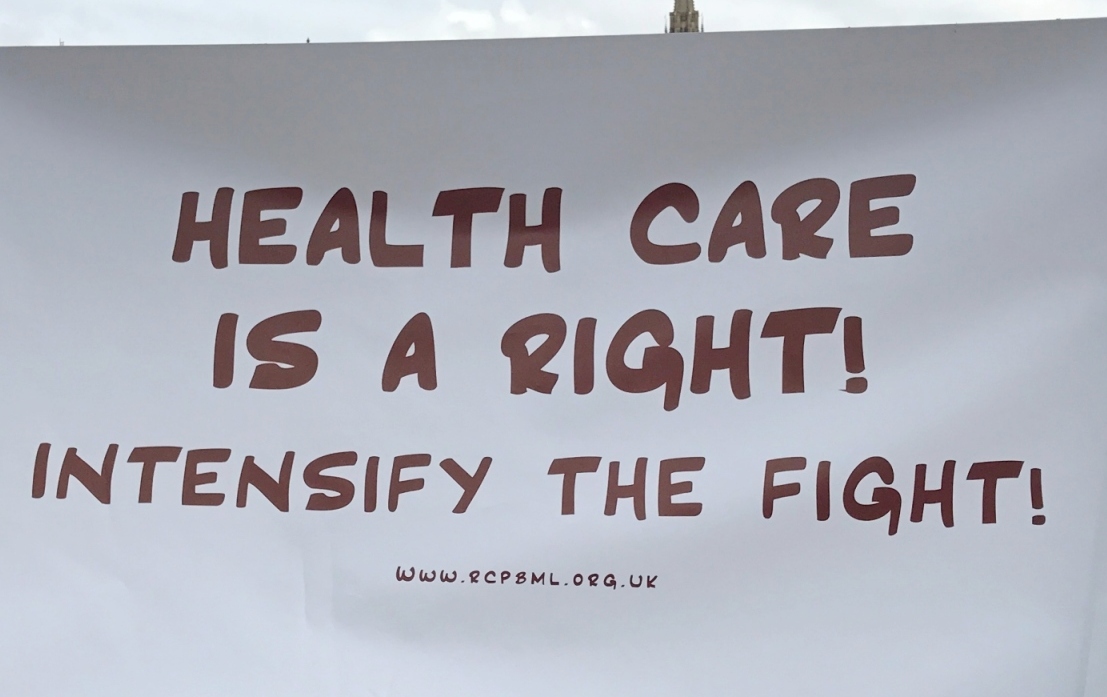
On March 4, following the British government's budget announcement, the
Department for Health and Social Security (DHSC) revealed that it had
recommended to the National Health Service (NHS) pay-review body only a
one per cent lower than inflation increase for NHS staff for 2021-2022.
The government says they will "wait for the
response from the independent pay review bodies before we announce the
pay settlement."
This decision follows an upsurge last year when the government
attempted to split the ranks of the workers by giving an
above-inflation pay rise to 900,000 public workers but not health
workers.
In the days following the announcement there has been increasing
opposition from health workers and their trade unions that this not
only fails to recognize the contribution of all health workers during
the pandemic, but also because the pay "increase" will amount to a cut
in pay for NHS staff in real terms. In addition, the government has now
frozen the pay of other public sector workers. To add insult to injury,
all the caregivers and those playing a vital role in the pandemic have had
their pay and conditions ignored as well.
"This Government offer is equivalent to one cup of coffee per week!" one of the unions pointed out.
The recommendation by the government to the Pay Review body covers
some 1.5 million health staff in NHS England, Scotland, Wales and the
north of Ireland. The recommendation does not cover over 160,000 staff
who work for agencies, or who have contracted-out employment. It also
does not cover an estimated 1.65 million staff working
as carers in care homes and in adult social care. Doctors, dentists and
very senior managers in the NHS have separate pay review arrangements.
The recommendation says that, during the pandemic, "the government
announced a pause in public sector pay rises for all workforces, with
an exception for employees with basic full-time equivalent salaries of
£24,000 or under and for the NHS. In settling the DHSC and NHS
budget, the government assumed a headline pay award of one per
cent for NHS staff. Anything higher would require re-prioritization."
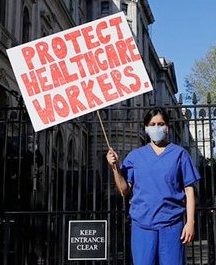 While
the
government claims that this is because COVID-19 "has placed a huge
strain on both public and NHS finances," the real issue is its
direction of using "both public and NHS finances" to pay the rich. The
present and previous governments have cut NHS services and public
services whilst contracting out more and more services to
private corporations. During the pandemic, this has seen vast sums
being paid out to private individuals and corporations, private
interests which the government has been keen to include more and more
in the health and social care system. This is the capital-centred
prioritization that the government is following and which it is trying
to justify over
their lack of investment in the human resources of a publicly provided
NHS service. While
the
government claims that this is because COVID-19 "has placed a huge
strain on both public and NHS finances," the real issue is its
direction of using "both public and NHS finances" to pay the rich. The
present and previous governments have cut NHS services and public
services whilst contracting out more and more services to
private corporations. During the pandemic, this has seen vast sums
being paid out to private individuals and corporations, private
interests which the government has been keen to include more and more
in the health and social care system. This is the capital-centred
prioritization that the government is following and which it is trying
to justify over
their lack of investment in the human resources of a publicly provided
NHS service.
In the House of Commons, only Jeremy Corbyn, now an independent MP,
highlighted the necessity to pay NHS staff properly and the outrageous
payments to private corporations: "Nurses have seen us through this
crisis and have saved many lives, yet they are offered a pay cut as a
result of it. Some are already having to resort to food banks
to survive, and a third are thinking of leaving the profession unless
they get a decent pay rise. Surely to goodness, if £37 billion
can be found to pay Serco for a failed track and trace system, the
money must be available to pay NHS staff properly," Corbyn said on
March 10.
According to the Minister of State for the DHSC, "every one per cent
increase will cost the taxpayer £750 million." He indicated that
the government is already planning further tax hikes and other ways of
charging to pass the burden of the crisis onto the people, whilst they
continue to pay the rich. They are also planning to push through
further legislation on the NHS as set out in the government's NHS White
Paper which has the same aim.
Health workers reject these self-serving arguments and continue to
express their determination that solutions be implemented that can
alleviate the crisis for the benefit of all.

(To access articles individually click on the black headline.)
PDF
PREVIOUS
ISSUES | HOME
Website: www.cpcml.ca
Email: office@cpcml.ca
|

